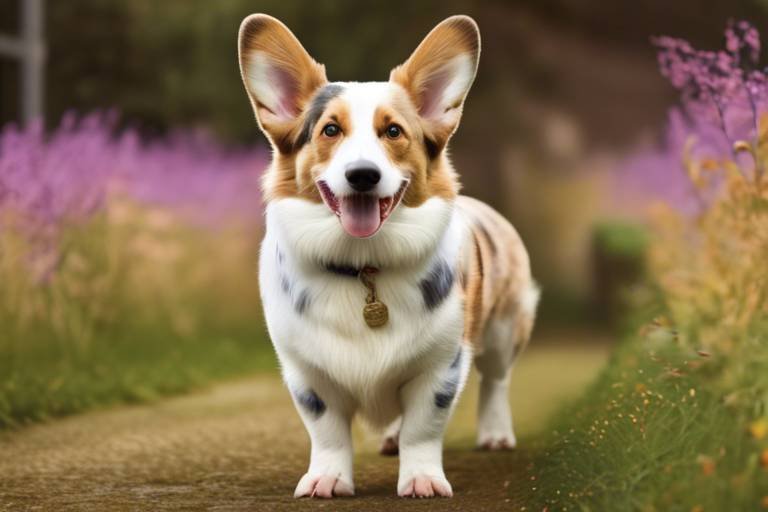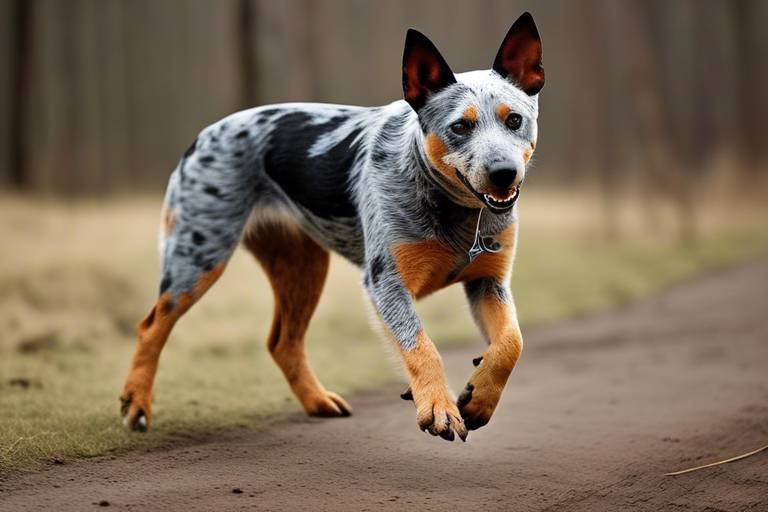Understanding the Life Stages of Different Pet Breeds
Pets are more than just companions; they are family members who bring joy, love, and a bit of chaos into our lives. Understanding the life stages of different pet breeds is crucial for providing the best care possible. Just like humans, pets go through various phases in their lives, each with its own unique needs, behaviors, and care requirements. From the playful antics of a puppy or kitten to the wise, gentle nature of a senior pet, every stage is distinct and requires our attention and understanding.
In this article, we will delve into the common life stages of pets, including the puppy/kitten, adult, and senior phases. Each stage has its own characteristics that not only affect their health but also their behavior. For instance, puppies and kittens are bundles of energy, exploring the world around them, while adult pets may settle into a routine, and senior pets often require special care to maintain their quality of life.
As we journey through these life stages, we'll explore key developmental milestones that pets experience, such as their physical growth and behavioral changes. We'll focus on the importance of socialization during the early months, which is crucial for shaping a pet's temperament and behavior. Additionally, we'll discuss essential health considerations that can set the foundation for a long and healthy life.
Every pet owner wants their furry friend to thrive at every stage of life. By understanding these stages, you can make informed decisions about your pet's care, ensuring they receive the right nutrition, exercise, and veterinary attention. So, whether you're a new pet owner or a seasoned one, this comprehensive guide will equip you with the knowledge you need to support your beloved pet through all of life's adventures.
When we think about the life stages of our pets, it’s like watching a beautiful story unfold. Each chapter brings new challenges and joys. The typical life stages of pets can be broken down into three main phases:
- Puppy/Kitten Stage: This is the time of growth, exploration, and learning.
- Adult Stage: Pets become more settled, often displaying their true personality.
- Senior Stage: This phase requires extra care and attention to ensure comfort and health.
Each of these stages presents unique challenges and rewards, making it essential for pet owners to adapt their care strategies accordingly. For example, puppies and kittens need more frequent meals and socialization experiences, while adult pets might require regular exercise and mental stimulation to keep them healthy and happy. Senior pets, on the other hand, may need special diets and more frequent veterinary check-ups to manage age-related health issues.
As pets grow, they reach various developmental milestones that are critical for their overall well-being. From the moment they are born, puppies and kittens begin to experience significant changes in their physical and emotional development. Understanding these milestones helps pet owners provide the right support at the right time.
Puppies and kittens undergo rapid growth during their first few months. They learn about their environment, develop social skills, and begin to understand their place in the world. This is a time filled with curiosity and playfulness, but it’s also a crucial period for learning boundaries. Just imagine a puppy navigating through a maze of furniture, learning what to chew on and what to avoid!
Socialization during the early months is vital. Positive experiences with people, other animals, and different environments help shape a pet’s behavior and temperament. Think of it as laying the groundwork for a well-adjusted adult pet. Early socialization can prevent behavioral issues later in life, making it a priority for new pet owners to expose their young pets to a variety of experiences.
In addition to socialization, health considerations are paramount for young pets. Regular veterinary visits for vaccinations, proper nutrition, and preventive care are essential to ensure a healthy start in life. Just like humans, pets need a solid foundation to grow strong and vibrant.
As pets transition into adulthood, their energy levels may stabilize, and their personalities become more defined. Adult pets often require routine veterinary care, including vaccinations and dental check-ups, to maintain their health. This stage is all about balance—ensuring they receive enough exercise to keep their weight in check while also providing mental stimulation to prevent boredom.
As our furry friends age, they enter the senior stage, which comes with its own set of unique needs. Senior pets may face health challenges that require special attention, such as dietary adjustments and lifestyle changes. It’s essential to recognize these changes and adapt our care accordingly to enhance their quality of life.
Senior pets are prone to certain health issues, such as arthritis, dental disease, and cognitive dysfunction. Regular veterinary check-ups become increasingly important during this stage to catch potential problems early. It’s like having a trusted advisor who helps navigate the complexities of aging, ensuring your beloved pet remains comfortable and happy.
Providing compassionate end-of-life care for aging pets is one of the most challenging yet rewarding responsibilities of pet ownership. It’s a sensitive topic that requires careful consideration and love. Options like palliative care can help manage pain and improve the quality of life during this difficult time. Making decisions about end-of-life care is never easy, but ensuring your pet's comfort and dignity is paramount.
Q: How can I tell what stage my pet is in?
A: Observe their behavior, energy levels, and health. Puppies and kittens are playful and curious, adults are more settled, and seniors may show signs of slowing down.
Q: What should I feed my senior pet?
A: Senior pets often benefit from a diet that is lower in calories but higher in fiber and specific nutrients to support joint health and overall well-being.
Q: How often should I take my senior pet to the vet?
A: Senior pets should ideally see a veterinarian every six months for check-ups to monitor their health closely.

Life Stages Overview
Understanding the life stages of pets is crucial for any pet owner. Just like humans, pets go through distinct phases that shape their behaviors, health, and care requirements. Typically, these stages can be categorized into three main phases: puppy/kitten, adult, and senior. Each stage presents unique challenges and joys, making it essential for owners to adapt their care strategies accordingly.
During the puppy and kitten phase, which lasts from birth until about six months, pets are in a rapid growth period. They require not only proper nutrition but also socialization to develop into well-adjusted adults. This is a time filled with curiosity and playfulness, but it also comes with the responsibility of ensuring their safety and well-being. Owners must be vigilant about vaccinations and preventive care during this time to protect their developing immune systems.
As pets transition into the adult stage, which generally spans from six months to around seven years, their energy levels and behaviors stabilize. Adult pets are often more independent and require a routine that includes regular exercise, mental stimulation, and consistent veterinary check-ups. This phase is where pet owners can truly enjoy the companionship of their pets, as their personalities become more defined. However, it's important to remain attentive to any changes in behavior or health, as these can signal underlying issues.
Finally, the senior phase, starting around seven years of age, brings about a different set of needs. Senior pets often experience a decline in physical abilities and may develop health issues such as arthritis or dental disease. Their dietary needs may also change, requiring adjustments to maintain their health and comfort. Owners must be prepared to provide additional care, which can include more frequent vet visits and modifications to their living environment to accommodate their aging pets.
In summary, recognizing and understanding these life stages is vital. Each phase not only influences a pet's behavior and health but also enhances the bond between pet and owner. By being proactive and informed, pet owners can ensure that their furry companions lead happy, healthy lives at every stage.
- What are the signs that my pet is entering the senior stage? Look for changes in activity levels, weight fluctuations, and any signs of discomfort or difficulty in movement.
- How can I help my puppy socialize effectively? Expose them to different environments, people, and other animals in a controlled manner to build their confidence.
- What dietary changes should I consider for my senior pet? Consult with your veterinarian to tailor a diet that meets their specific health needs, often focusing on lower calories and higher fiber.

Developmental Milestones
When we think about our furry companions, it's easy to overlook the intricate journey they embark on from the moment they enter this world. Each pet breed, whether it's a lively puppy or an inquisitive kitten, experiences a series of that are crucial for their growth and well-being. Understanding these milestones is not just beneficial for pet owners; it’s essential for fostering a healthy, happy life for our pets. Just like humans, pets go through various stages that shape their physical and emotional development.
In the early days, from birth to about eight weeks, puppies and kittens undergo rapid growth. During this time, they are incredibly vulnerable and rely heavily on their mothers for nourishment and protection. This is also the period where they begin to open their eyes and ears, marking the start of their sensory development. It's fascinating to watch as they tentatively explore their surroundings, learning about the world through play and interaction. This exploration is not just fun; it’s a vital part of their development that helps them build confidence and social skills.
As they transition into the socialization phase—typically between eight weeks to six months—puppies and kittens become more aware of their environment and the other beings in it. This is where the magic happens! Socialization is paramount during this phase. Exposing them to different people, pets, and experiences can significantly influence their behavior as adults. Imagine a puppy being introduced to a variety of sounds, sights, and smells; it’s like opening a book filled with adventures waiting to be explored. The experiences they gather during this period can shape their temperament for years to come.
Now, let’s not forget about the health considerations that accompany these milestones. Vaccinations are a critical part of ensuring that young pets are protected against various diseases. Regular vet visits during this time can help monitor their growth and development, ensuring they receive the necessary preventive care. Nutrition also plays a vital role; it’s the fuel that powers their playful antics and growth spurts. A balanced diet rich in essential nutrients will support their physical development and overall health.
As pets grow into adulthood, typically around one to two years of age, they will experience a shift in their energy levels and behavior. Adult pets are often more balanced, with established routines and personalities. They may still have bursts of energy, but they also enjoy their quiet time. It’s crucial to maintain regular veterinary visits during this stage to monitor their health and catch any potential issues early on. After all, a healthy adult pet is a happy pet!
In summary, understanding the developmental milestones of our pets is essential for providing them with the best care possible. By recognizing the importance of early socialization, health considerations, and the transitions they undergo, we can be better prepared to support our furry friends through each stage of their lives. Remember, every milestone is an opportunity to bond, nurture, and create lasting memories with your beloved pets!
- What are the key milestones for puppies and kittens? Puppies and kittens typically experience milestones such as opening their eyes and ears, starting to walk, and beginning to socialize with their environment.
- How can I ensure my pet is well-socialized? Expose your pet to various environments, people, and other animals during their early development stages to help them become well-adjusted adults.
- What health checks should I prioritize for my young pet? Regular veterinary visits for vaccinations, nutrition advice, and general health checks are crucial during the early stages of your pet's life.
Puppy and Kitten Development
When it comes to puppies and kittens, their early development is nothing short of remarkable. These tiny furballs grow and change rapidly, transforming from helpless newborns into energetic and curious little beings. The first few weeks of their lives are crucial, as they lay the foundation for their future health and behavior. During this time, their bodies undergo significant physical changes, and their brains are busy absorbing information about the world around them.
In the first few weeks, puppies and kittens rely entirely on their mothers for nourishment and warmth. As they begin to open their eyes and ears, usually around two weeks old, they start to experience the world in a whole new way. This sensory awakening marks the beginning of a critical phase known as the socialization period, which typically spans from 3 to 14 weeks of age. During this time, it’s essential for them to encounter various people, animals, and environments to develop into well-adjusted adults.
One of the most fascinating aspects of puppy and kitten development is their play behavior. Play is not just a fun pastime; it's a vital part of their growth. Through play, they learn important social skills, such as bite inhibition and how to communicate with others. It’s during these playful interactions that they begin to understand their physical capabilities and the boundaries of acceptable behavior. For instance, a puppy might learn that nipping too hard during playtime can lead to a negative response from its littermates.
To support their development, it's essential to provide a safe and stimulating environment. This means offering a variety of toys and opportunities for exploration. Engaging them in play not only satisfies their natural instincts but also strengthens the bond between pet and owner. Moreover, introducing them to different sounds, sights, and smells can help reduce fearfulness later in life. It's like giving them a crash course in the world, equipping them with the tools they need to thrive.
Nutrition also plays a pivotal role during these formative months. Puppies and kittens require a diet rich in essential nutrients to support their rapid growth. High-quality, age-appropriate food helps ensure they receive the right balance of proteins, fats, vitamins, and minerals. Regular veterinary check-ups are crucial during this stage to monitor their growth and to keep them on track with vaccinations and preventive care.
As they approach the end of their early developmental phase, you’ll notice behavioral changes as well. They become more independent and may start testing boundaries. This is perfectly normal! However, it’s essential to guide them through this stage with consistent training and positive reinforcement. After all, teaching them the right behaviors early on can prevent unwanted habits from forming later.
In summary, the development of puppies and kittens is a journey filled with milestones that shape their future. From their initial weeks of life to the end of the socialization period, every experience counts. By understanding their needs and providing the right support, you can help them grow into happy, healthy adult pets.
- What are the key milestones in puppy and kitten development? Puppies and kittens progress through several key stages, including sensory development, socialization, and play behavior, all of which are critical for their growth.
- How can I socialize my puppy or kitten effectively? Introduce them to a variety of people, pets, and environments gradually, ensuring each experience is positive and rewarding.
- What should I feed my young pet? It's best to choose high-quality, age-appropriate food that provides the necessary nutrients for their growth.
- When should I take my puppy or kitten to the vet? Regular vet visits should start as soon as you bring them home to monitor their health and keep up with vaccinations.
Socialization Importance
Socialization is one of the most crucial aspects of a pet's early development. Just like how children learn to interact with the world around them, puppies and kittens need to experience various environments, people, and other animals to grow into well-adjusted adults. Imagine a puppy that hasn’t met many new faces or heard different sounds; it’s akin to a child who’s never left their hometown. They might find the world overwhelming and react with fear or aggression. This is why the early months of a pet's life are so vital.
During this period, positive experiences can shape a pet's behavior and temperament for life. A well-socialized pet is often more confident and less anxious, making them easier to train and manage. For instance, a dog that has been exposed to various situations—like meeting other dogs, being around children, or experiencing different noises—will likely be more adaptable and less fearful in new situations. On the flip side, a lack of socialization can lead to behavioral issues such as aggression or extreme shyness.
To ensure your pet receives the best socialization, consider these key experiences:
- Exposure to different environments (parks, busy streets, and homes)
- Interactions with various people (children, adults, and elderly)
- Meeting other pets (dogs, cats, and even small animals)
It's essential to remember that socialization should be a gradual process. Rushing a pet into overwhelming situations can lead to negative experiences, which is counterproductive. Instead, take the time to introduce them to new experiences slowly and positively. Use treats and praise to reinforce good behavior, making these interactions enjoyable. Think of it as building a foundation; the stronger the base, the more resilient the structure.
Furthermore, socialization isn't just a one-time event. It should continue throughout a pet's life. Regular trips to the dog park, playdates with other pets, or even attending training classes can help maintain their social skills. Just like humans, pets can benefit from lifelong learning and exposure to new experiences.
In summary, socialization is not just about preventing behavioral issues; it’s about enriching your pet's life. A well-socialized pet is often happier, healthier, and more connected to their human family. So, let your furry friend explore the world, make new friends, and discover all the joys life has to offer!
Health Considerations
When it comes to the health of our beloved pets, especially during their formative years, there are several crucial considerations that every pet owner should be aware of. Vaccinations, for instance, play a vital role in protecting young pets from various infectious diseases. These vaccines should begin shortly after birth and continue as your pet grows. It's like giving them a superhero cape that shields them from harmful invaders. Regular veterinary check-ups are essential during this period to monitor their growth and ensure they are developing healthily.
Nutrition is another cornerstone of your pet's early health. Puppies and kittens have specific dietary needs that differ significantly from those of adult pets. They require a diet rich in proteins and essential nutrients to support their rapid growth and development. Think of it as fueling a high-performance engine; the right fuel ensures optimal performance. Consult with your veterinarian to choose a high-quality pet food that meets the nutritional requirements for your pet's breed and age.
In addition to vaccinations and nutrition, preventive care should not be overlooked. This includes regular treatments for parasites such as fleas, ticks, and worms, which can pose serious health risks if left unchecked. Keeping your pet on a preventive care schedule is like putting on a raincoat before stepping out into a storm; it helps keep them safe from potential threats. Early detection of health issues can significantly improve the outcomes, so be vigilant about any changes in your pet's behavior or appetite.
Furthermore, socialization is a crucial aspect of your pet’s health that often gets overlooked. Exposing puppies and kittens to various environments, people, and other animals helps them develop into well-adjusted adults. A well-socialized pet is less likely to develop behavioral problems, which can lead to stress and anxiety later in life. It's akin to teaching a child how to navigate the world; the more experiences they have, the better equipped they are to handle life's challenges.
Lastly, be aware of the signs of potential health issues. Just like us, pets can experience discomfort or illness, and they may not always be able to communicate it. Look out for symptoms such as lethargy, changes in appetite, or unusual behaviors. If you notice anything concerning, don't hesitate to reach out to your veterinarian. After all, being proactive about your pet's health is the best way to ensure they live a long and happy life.
- What vaccinations do puppies and kittens need? Puppies and kittens typically need a series of vaccinations for diseases like parvovirus, distemper, and rabies. Consult your vet for a tailored vaccination schedule.
- How often should I take my pet to the vet? It's advisable to take your pet for a check-up at least once a year, though younger pets may require more frequent visits.
- What kind of food should I feed my young pet? Look for high-quality pet food formulated specifically for puppies or kittens, rich in protein and essential nutrients.
- How can I tell if my pet is sick? Watch for signs such as lethargy, changes in eating habits, or unusual behavior. If you're concerned, consult your veterinarian.
Adult Life Stage
The of pets is a fascinating period that brings about significant changes in their behavior and health. Typically, this stage begins around one year of age for dogs and cats, although the exact timing can vary by breed. During this phase, pets reach their full size and weight, and their personalities start to solidify. It's a time when they are often at their most energetic and playful, yet they also begin to settle into more predictable patterns of behavior. Have you ever noticed how your dog seems to have boundless energy, yet after a long walk, they curl up on the couch for a nap? That’s the beauty of adulthood in pets – a balance of vitality and calm.
As pets transition into adulthood, their energy levels can vary significantly depending on their breed. For instance, high-energy breeds like Border Collies or Jack Russell Terriers might require more exercise and mental stimulation compared to more laid-back breeds like Bulldogs or Basset Hounds. This is why it’s crucial for pet owners to tailor their pet’s activity levels to their specific needs. Regular exercise not only helps maintain a healthy weight but also combats behavioral issues that can arise from boredom or excess energy.
Moreover, adult pets often exhibit distinct behavioral traits that reflect their maturity. They may become more independent, making them less likely to follow you around the house like they did as puppies or kittens. However, this doesn’t mean they don’t enjoy your company; rather, they may have developed a sense of confidence and comfort in their environment. It’s essential to continue engaging with your pet through playtime and training to reinforce good behavior and strengthen your bond.
Another critical aspect of the adult life stage is the importance of routine veterinary care. Regular check-ups are vital to monitor your pet’s health and catch any potential issues early. During these visits, your veterinarian will likely discuss vaccinations, parasite control, and dental health, which are all crucial for maintaining your pet’s well-being. Did you know that dental disease is one of the most common health issues in adult pets? Neglecting dental care can lead to serious health problems, so it’s essential to incorporate dental hygiene into your pet's routine.
In summary, the adult life stage is a vibrant and dynamic period that requires pet owners to be attentive and proactive. By understanding your pet’s unique needs and behaviors, you can provide the appropriate care and environment that allows them to thrive. Remember, keeping your adult pet happy and healthy is a lifelong commitment that pays off in the joy they bring to your life.
- How can I tell if my pet is getting enough exercise? Look for signs like weight gain, excessive barking, or destructive behavior. Regular playtime and walks should keep them engaged.
- What should I feed my adult pet? A balanced diet appropriate for their age, size, and activity level is crucial. Consult your vet for specific recommendations.
- How often should I take my adult pet to the vet? Annual check-ups are generally recommended, but your vet may suggest more frequent visits based on your pet’s health needs.

Senior Pets: Unique Needs
As pets age, their needs evolve significantly, and understanding these changes is crucial for ensuring a happy and healthy life for our furry companions. Senior pets often require more attention and specialized care compared to their younger counterparts. Just like humans, aging pets undergo various health challenges and lifestyle adjustments that can affect their overall well-being. So, what should pet owners be aware of as their beloved animals transition into their golden years?
One of the primary concerns for senior pets is their health. As they age, they become more susceptible to a range of health issues. This includes conditions such as arthritis, which can make movement painful and challenging. Regular check-ups with a veterinarian become essential during this stage to monitor for common ailments that can arise, including dental disease and cognitive dysfunction, which affects their mental sharpness and behavior.
Dietary needs also shift as pets grow older. Senior pets often require a diet that is lower in calories but higher in essential nutrients. This helps manage their weight and supports their overall health. Many pet food brands offer specialized formulas designed to meet the unique needs of senior pets, which can be beneficial in maintaining their vitality. It's important to consult with a vet to determine the best dietary plan for your aging pet.
Moreover, lifestyle changes are a must for senior pets. They may not have the same energy levels as they did in their youth, which can lead to a more sedentary lifestyle. This doesn't mean they don't need exercise; rather, the type and amount of activity should be adjusted. Gentle walks and playtime can help keep them active without overexerting them. Creating a comfortable environment that accommodates their physical limitations, such as providing soft bedding and easy access to food and water, is also vital.
Finally, as difficult as it may be, preparing for end-of-life care is an essential aspect of owning a senior pet. This involves having conversations with your veterinarian about palliative care options and understanding when it might be time to make tough decisions regarding your pet's quality of life. It's a heart-wrenching topic, but being informed and compassionate can help ensure your pet's final days are as comfortable and loving as possible.
- What are the signs that my pet is aging? Look for changes in behavior, mobility, and eating habits. Increased sleeping, reluctance to play, or difficulty getting up can all indicate aging.
- How can I help my senior pet stay healthy? Regular vet visits, a balanced diet tailored for seniors, and appropriate exercise can greatly enhance your pet's quality of life.
- What should I consider when choosing food for my senior pet? Look for food that is specifically formulated for senior pets, focusing on lower calories and higher fiber to support digestion and weight management.
- How can I make my home more comfortable for a senior pet? Provide soft bedding, easy access to food and water, and minimize stairs or obstacles that could cause injury.
Common Health Issues
As our beloved pets transition into their golden years, it's crucial to be aware of the that can arise. Just like humans, pets experience a variety of changes in their bodies as they age, making them susceptible to certain conditions. Recognizing these issues early on can make a significant difference in their quality of life and overall well-being. So, what should you be on the lookout for?
One of the most prevalent concerns in senior pets is arthritis. This degenerative joint disease can cause significant pain and discomfort, limiting their mobility and affecting their ability to enjoy life. Imagine how difficult it would be for us to get around if our joints were stiff and achy! Regular vet check-ups can help identify the onset of arthritis, and treatments such as anti-inflammatory medications or joint supplements can greatly improve their comfort.
Another common issue is dental disease. Just like us, pets can suffer from plaque buildup, leading to gum disease and tooth loss. It's estimated that by the age of three, over 80% of dogs and 70% of cats show signs of dental disease. Regular dental cleanings and at-home oral care can help maintain their dental health, which is vital for their overall health since poor dental hygiene can lead to more serious health problems.
Additionally, cognitive dysfunction syndrome (CDS) is a condition that affects many older pets, similar to dementia in humans. Symptoms can include disorientation, disrupted sleep patterns, and changes in behavior. If you've noticed your furry friend wandering aimlessly or forgetting their favorite spots, it might be time to consult your veterinarian. There are various treatments available that can help manage these symptoms and improve their quality of life.
It's also essential to keep an eye on their weight. Obesity is a growing concern among pets, and it can lead to a myriad of health issues, including diabetes, heart disease, and joint problems. A balanced diet tailored to their age and activity level, along with regular exercise, can help maintain a healthy weight. Remember, a few extra pounds can make a significant difference in their overall health!
Lastly, senior pets often face kidney disease and other organ-related issues. Regular blood tests and urinalysis can help detect these problems early, allowing for timely intervention. Keeping your pet hydrated and providing a diet that supports kidney health can also be beneficial.
In summary, being proactive about your pet's health as they age is crucial. Regular veterinary visits, a proper diet, and staying alert to any changes in behavior can help ensure that your furry friend enjoys their senior years to the fullest. Remember, you know your pet best, so trust your instincts and don’t hesitate to seek veterinary advice if something seems off!
- What are the signs my pet is aging? Look for changes in activity levels, weight fluctuations, and behavioral changes such as increased sleeping or disorientation.
- How often should senior pets see the vet? It's generally recommended that senior pets have check-ups at least twice a year to monitor their health closely.
- Can diet help with my senior pet's health issues? Absolutely! A balanced diet tailored to their specific needs can help manage many age-related health issues.
End-of-Life Care
When the time comes to say goodbye to our beloved pets, the emotional weight can be overwhelming. is a crucial aspect of pet ownership that often gets overlooked until it’s too late. Understanding how to provide compassionate care during this sensitive time can make a world of difference, not just for your pet but for you as well. After all, our furry friends deserve the best, even in their final days.
First and foremost, it’s essential to recognize the signs that your pet may be nearing the end of their life. Changes in behavior, such as increased lethargy, loss of appetite, or difficulty in mobility, can indicate that they are in pain or discomfort. Observing these signs allows you to make informed decisions about their care. It’s important to consult with your veterinarian to discuss these changes, as they can provide valuable insights and help you understand what your pet is experiencing.
One of the most significant aspects of end-of-life care is ensuring your pet remains comfortable. Creating a peaceful environment can help ease their anxiety. Consider the following strategies:
- Comfortable bedding: Provide soft, warm bedding in a quiet area where your pet feels safe.
- Pain management: Work with your vet to establish a pain management plan that may include medications or alternative therapies.
- Quality time: Spend time with your pet, offering gentle affection and companionship to reassure them.
As the end approaches, you may also need to consider palliative care options. This type of care focuses on improving the quality of life rather than curing the illness. It can include pain relief, nutritional support, and emotional comfort. Your vet can guide you through these options and help tailor a plan that suits your pet's specific needs.
Making the decision about euthanasia is one of the hardest choices a pet owner can face. It’s a deeply personal decision that should be made with careful consideration and compassion. If your pet is suffering and their quality of life has diminished, it may be time to discuss euthanasia with your veterinarian. They can help you understand the process and what to expect, making the experience as peaceful as possible for both you and your pet.
Finally, after your pet has passed, the grieving process begins. It's essential to allow yourself to feel the sadness and loss. Remember that it’s okay to seek support from friends, family, or even pet loss support groups. Sharing your feelings and memories can help in the healing process.
In the end, providing is not just about managing pain or making tough decisions; it’s about honoring the bond you shared with your pet. By being attentive to their needs and giving them love and comfort in their final days, you can ensure that their last moments are filled with dignity and peace.
- What signs should I look for to know if my pet is nearing the end of life? Look for signs such as decreased appetite, lethargy, difficulty breathing, or changes in behavior.
- How can I help my pet feel more comfortable in their final days? Provide a quiet, comfortable space, manage their pain with veterinary help, and spend quality time with them.
- What is palliative care for pets? Palliative care focuses on relieving symptoms and improving the quality of life for pets with serious illnesses without necessarily trying to cure them.
- How do I know when it’s time to consider euthanasia? If your pet is suffering and their quality of life has significantly declined, it's essential to consult with your veterinarian to discuss your options.
Frequently Asked Questions
- What are the different life stages of pets?
Pets typically go through several life stages: puppy/kitten, adult, and senior. Each stage has its own set of needs and behaviors. Understanding these stages helps pet owners provide appropriate care.
- How can I tell if my puppy or kitten is developing normally?
Watch for key developmental milestones such as physical growth, socialization, and behavioral changes. If your pet is active, curious, and engaging with their environment, they're likely on the right track!
- Why is socialization important for young pets?
Socialization helps shape a pet's behavior and temperament. Positive experiences during their early months can lead to a well-adjusted adult pet, reducing anxiety and aggressive tendencies later in life.
- What health considerations should I keep in mind for my young pet?
Ensure your puppy or kitten receives vaccinations, proper nutrition, and regular veterinary check-ups. These steps are crucial to setting a solid foundation for a healthy life.
- What changes should I expect as my pet transitions into adulthood?
Adult pets often exhibit stable energy levels and established behavioral traits. It's essential to maintain a routine for exercise, nutrition, and veterinary care to keep them healthy and happy.
- What unique needs do senior pets have?
Senior pets may face health issues and require dietary adjustments. Regular vet visits become even more critical to address any emerging health concerns and enhance their quality of life.
- What are common health issues in senior pets?
Common health issues for senior pets include arthritis, dental disease, and cognitive dysfunction. Being aware of these can help you take proactive steps to manage their health.
- How can I provide end-of-life care for my aging pet?
Compassionate end-of-life care may include palliative options to manage pain and discomfort. It's important to have open discussions with your veterinarian about your pet's quality of life and any difficult decisions that may arise.



















